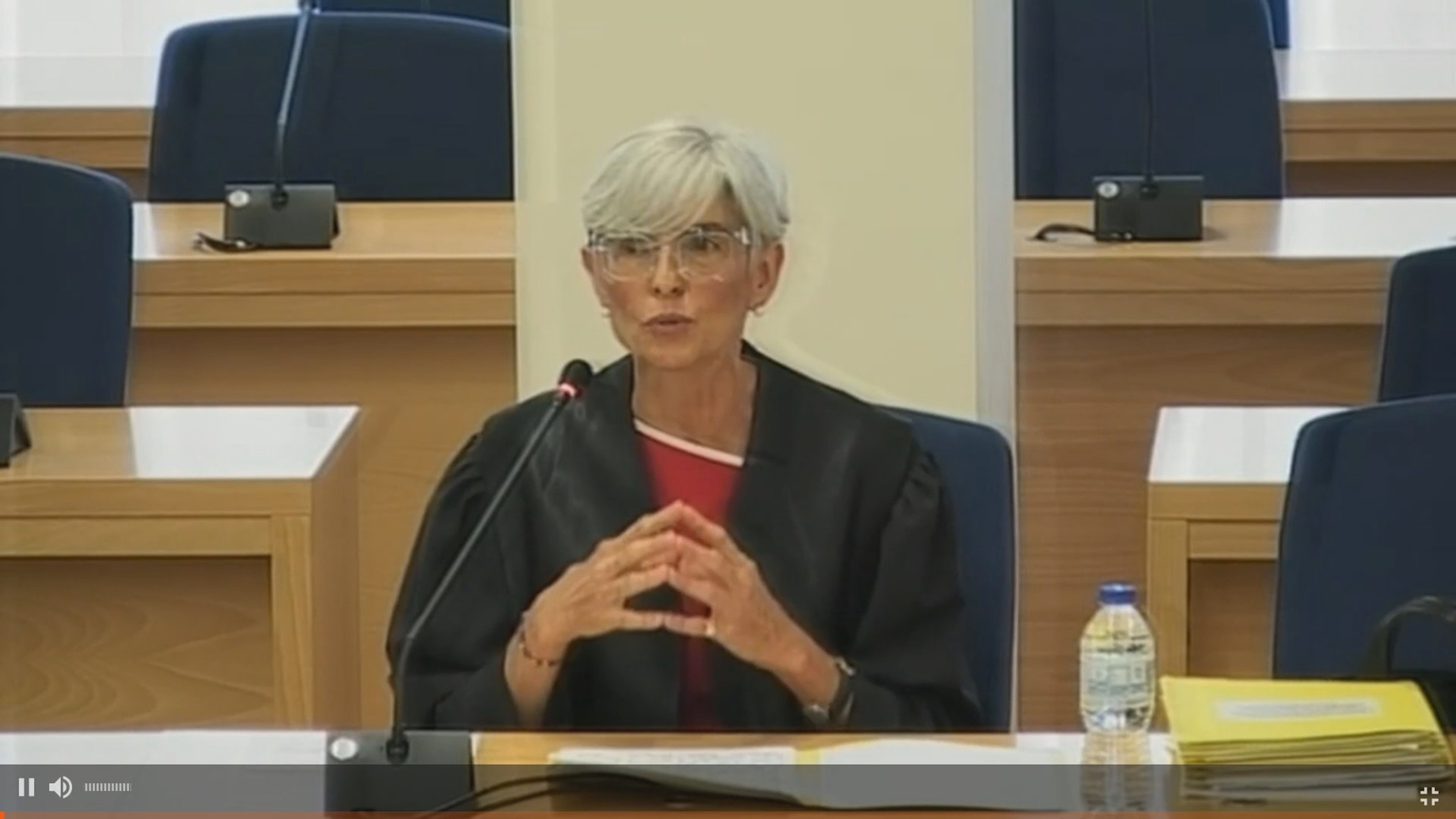"The prosecution has no solid evidence to support a conviction for sedition." Olga Tubau, lawyer for the Mossos d'Esquadra police chief Josep Lluís Trapero, centred her final summing up - over five hours long so far, and still to be concluded tomorrow - on dismantling all the prosecution accusations aimed at a conviction for sedition. She also destroyed the alternative charge - disobedience - which the prosecutor had put forward so that the case "does not all end up as waste paper".
In the final sessions of the trial of four Catalan police leaders accused of sedition over the 2017 Catalan independence referendum, lawyer Tubau stressed that at all times the police chief acted in compliance with the judicial order which required police forces to act to stop the vote. In fact, the lawyer stressed that before complying physically with the court order, Trapero "went further" when he spoke to the political heads of the Catalan government - Carles Puigdemont, Oriol Junqueras and Joaquim Forn - at a Generalitat palace meeting and asked them explicitly to call off the referendum.
That “decimates both the sedition and disobedience charges” which the prosecution case has sought to prove.
But Tubau also remarked that in all the meetings that took place, both those with the Catalan government and those of the security committee with the Spanish state, "neither the Spanish government officials nor anyone else had any doubt that the referendum would be held".
"The illegal referendum was held and none of the three bodies who were given the job of preventing it, were able to comply with what they had been ordered to do, neither jointly or separately. It was a policing failure before the Catalonia High Court (TSJC) - the judicial body that had ordered the vote to be stopped - or perhaps it was mainly a political failure for which the police forces are being made responsible", affirmed the lawyer in her concluding submission to the trial. Chief Trapero is accused of sedition - on the grounds that he deliberately allowed the referendum to go ahead as part of a conspiracy to allow the independence movement to achieve its goals.
The police chief's lawyer summed up the defence strategy which her client has repeated during the trial, that on referendum day, 1st October 2017, "two million people" went out to vote and "there were not enough police officers in any of the three police corps" to stop them.
But, in addition, Tubau denounced the irregularities created by the fact that the Spanish National Police and the Civil Guard were the two bodies in charge of investigating the independence process but they were also the bodies commissioned by the Court to prevent the referendum. Their statements, she said, are tinged with "personal assessments aimed at making Trapero exclusively responsible".
In her opinion, "the Civil Guard and National Police have a direct interest in these facts because if Chief Trapero is convicted" and if the sentence handed down by the National Audience court says that the 1st October was a "failure of the Mossos d'Esquadra ", then the other two bodies "will see their image restored".
Tubau also criticized the will to make Trapero "responsible for the acts of third parties", that is, other members of the Mossos who acted on the day of the independence referendum. "It is as if he had been omnipresent and omnipotent over all the agents who played a part in the Economy Ministry protest on September 20th or at the polling stations on October 1st," she remarked.

